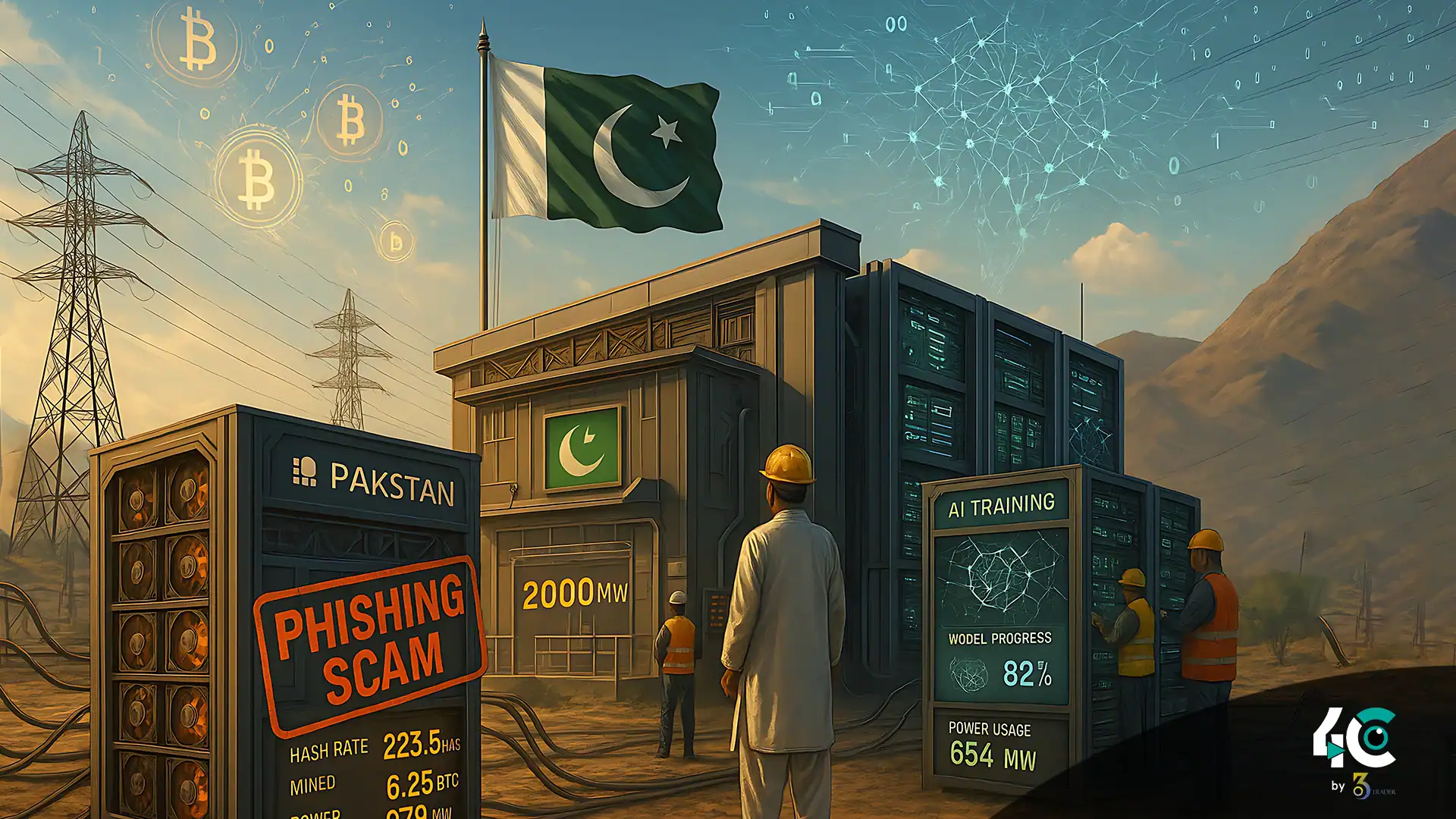Pakistan Allocates 2,000 MW for Bitcoin Mining and AI Development
Pakistan has allocated 2,000 megawatts (MW) of surplus electricity for Bitcoin mining and artificial intelligence (AI) data centers, signaling its aspirations to become a regional leader in digital innovation. This initiative is a step towards the country’s strategy to utilize technology for economic progress.
Supported by the Ministry of Finance, the proposal is anchored on an initiative led by the Pakistan Crypto Council (PCC), which has recently been constituted by the government to regulate digital assets in a blockchain environment. PCC was formed in March, which is headed by entrepreneur Bilal Bin Saqib, who is now chief advisor to the finance minister on crypto and blockchain matters.
Finance minister Muhammad Aurangzeb said that the energy allocation is not merely a tech policy but an economic transformation. By diverting unused power from poor-performing plants, the country hopes to monetize idle energy for foreign direct investment (FDI), generation of U.S. dollar revenues, and creation of thousands of high-tech jobs in the country.
According to Aurangzeb, Pakistan occupies a unique geographical and economic position that serves as a bridge between Asia, Europe and the Middle East, making it an ideal place for digital infrastructure, including data centers and blockchain hives.
International interest is already rising. Many global companies involved in Bitcoin mining and AI infrastructure have visited Pakistan for exploratory talks, and more such visits are expected. Around the world, demand for AI data centers is greater than 100 gigawatts (GW), but supply is only 15 GW. Pakistan’s energy surplus and expanding regulatory framework offer a timely solution.
The government’s strategy also aims at long-term sustainability. The plan’s later phases will involve a shift to renewable energy, taking advantage of the country’s vast wind, solar and hydropower potential, including the 50,000 MW wind power capacity along the Gharo-Keti Bandar corridor.
To lure in investors, the government would offer several incentives like tax holidays, exemption from customs duties on equipment, and a lower tax rate to develop AI and blockchain infrastructure.
Under the plan, the Pakistan Digital Assets Authority (PDAA) would be formed, which will oversee the licensing of exchanges, digital wallets, dApps, and stablecoins. In addition, it will tokenize public debt and national assets and support blockchain start-ups.
The arrival of the Africa-2 Submarine Cable will further enhance Pakistan’s digital infrastructure. The Africa-2 is a 45,000-kilometer fiber-optic network connected to 33 countries. When these features are utilized, internet bandwidth, speed, and reliability improve—something essential to running data centers at scale.
Pakistan is already ranked 9th in the world in crypto adoption due to having 40 million crypto users and increasing adoption in centralized platforms. Pakistan is witnessing the emergence of a critical mass of tech-savvy youth who, along with the government and other players, are working with the momentum to build an ecosystem. This, along with policy support and infrastructure development, makes it a serious contender in the race for digital transformation.
According to Saqib, this project is a “game changer” not just in accepting the digital assets but also in thinking about how power, technology and innovation can be blended for the economic takeoff of the country.



























